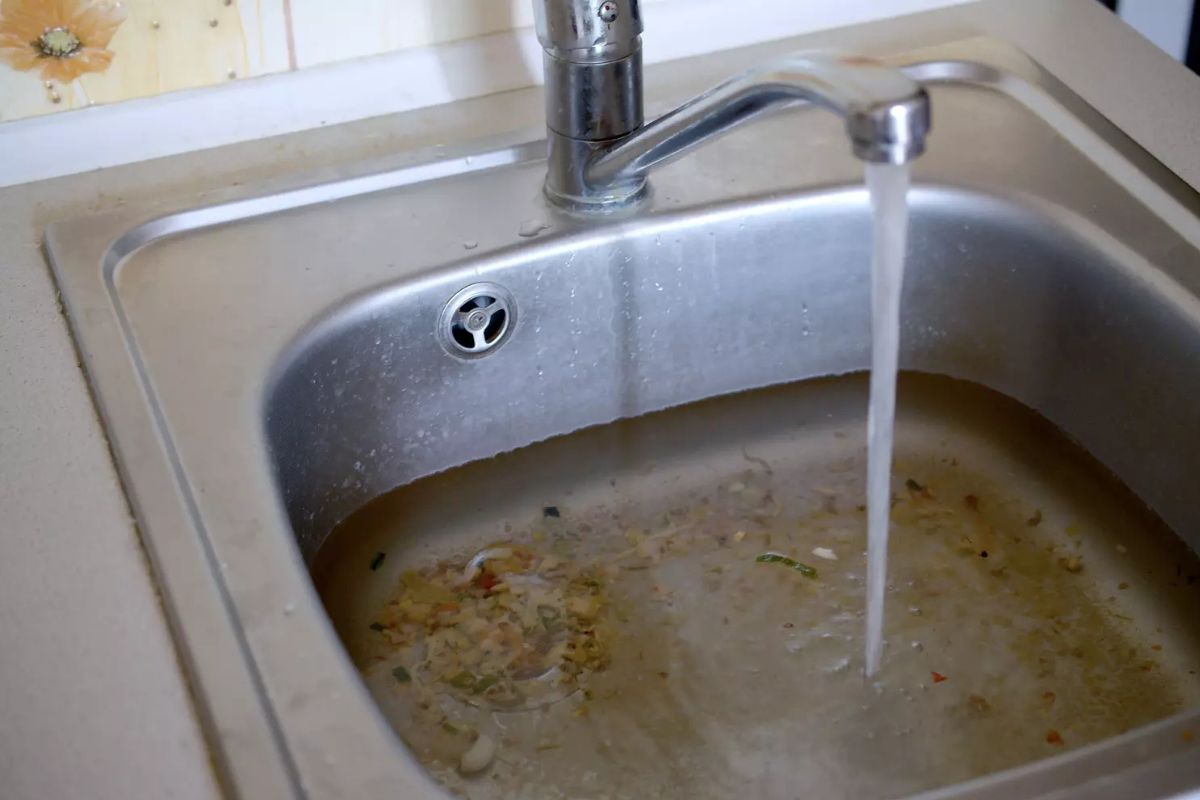Show table of content Hide table of content
Discovering effective methods to unclog drains has become a priority for homeowners across the country. While chemical drain cleaners dominate store shelves, professional plumbers increasingly recommend a natural alternative that delivers impressive results without harsh chemicals. This simple solution has revolutionized how we approach blocked pipes and slow-draining sinks.
The natural solution plumbers recommend for stubborn clogs
When faced with blocked drains, most homeowners rush to purchase expensive chemical cleaners. However, professionals in the plumbing industry have long relied on a more natural approach: sodium carbonate crystals, commonly known as washing soda. This white, odorless powder derived from natural materials like salt and limestone provides powerful cleaning action without environmental damage.
Washing soda works by breaking down the substances most commonly responsible for clogs: grease, food particles, hair, soap scum, and mineral deposits. Its alkaline properties create a chemical reaction that effectively dissolves these materials, allowing water to flow freely again through your pipes. Unlike commercial products filled with harmful chemicals that can damage our health, this method offers a safer alternative.
Cleaning Washing machine: Few people know this simple trick for cleaner, softer laundry.
Professional plumbers value this technique because it’s gentle on pipes yet highly effective against most household clogs. The versatility of sodium carbonate makes it suitable for kitchen sinks, bathroom drains, and shower traps alike. Its natural composition also means fewer concerns about pipe corrosion or damage to septic systems that often result from harsh chemical cleaners.
How to implement this professional unclogging technique
Using sodium carbonate crystals effectively requires following specific steps to maximize results. Begin by ensuring you have protective gloves, as these crystals can irritate skin despite their natural origins. Safety should always come first when handling any cleaning product, even natural ones.
The dry application method works wonderfully for many clogs. Pour approximately 1 cup of washing soda directly into the affected drain early in the morning when pipes are typically dry. Allow the crystals to sit undisturbed for at least 30 minutes, giving them time to penetrate the blockage. Follow with boiling water to flush away the dissolved debris and restore proper flow.
For more challenging blockages, plumbers often recommend the vinegar combination technique. First, add sodium carbonate crystals to the drain, then pour at least 2 cups of white vinegar over them. This creates a bubbling reaction that aggressively breaks down stubborn clogs. The fizzing action you’ll observe is actually the chemical process working to dissolve the obstruction. Once the reaction subsides, flush thoroughly with hot water.
Another effective approach involves creating a sodium carbonate solution. Dissolve about 1 cup of crystals in a gallon of hot water, stirring until completely integrated. Pour this mixture slowly down the problem drain and leave it overnight for optimal results. This method works particularly well for slow-draining pipes that aren’t completely blocked, similar to how specialized tools can effectively clean wood stoves without excessive effort.
Why plumbers prefer this method over commercial alternatives
Professional plumbers increasingly recommend sodium carbonate over commercial drain cleaners for several compelling reasons. First, it’s significantly more affordable. A large box of washing soda costs a fraction of what you’d pay for chemical drain cleaners, while often providing multiple treatments. This cost-effectiveness makes it an attractive option for regular maintenance.
The environmental benefits also cannot be overstated. Chemical drain cleaners introduce harmful substances into our water systems, potentially harming aquatic life and contaminating drinking water. Washing soda, being biodegradable and derived from natural sources, leaves a much smaller ecological footprint. This aligns with growing consumer interest in natural products that promote health and wellbeing.
Health considerations play a major role in professionals’ preference for this method. Chemical drain cleaners release toxic fumes that can irritate respiratory systems and pose serious risks if accidentally ingested or splashed onto skin. Sodium carbonate, while requiring basic safety precautions, presents significantly lower health risks to household members and pets.
Plumbers also value how sodium carbonate preserves plumbing systems. Repeated use of caustic chemical cleaners can degrade pipes over time, leading to expensive repairs. The gentler action of washing soda effectively clears clogs without compromising pipe integrity, similar to how aluminum foil can provide unexpected protection in other household applications.
Preventive measures and important precautions
While sodium carbonate offers an excellent solution for existing clogs, professional plumbers emphasize that prevention remains the best strategy. Installing drain strainers in kitchen sinks and shower drains can catch hair and food particles before they enter your plumbing system. Regular maintenance with small amounts of washing soda can also prevent buildup before it becomes problematic.
When using sodium carbonate, certain precautions must be observed. Never mix it with commercial drain cleaners, as this can trigger dangerous chemical reactions that produce toxic gases. If you’ve recently used a chemical product, thoroughly flush the system before applying washing soda. This safety measure protects both your health and your plumbing infrastructure.
For homes with older plumbing systems, plumbers recommend testing this method on a small scale first. While generally safe for most modern pipes, extremely old or damaged plumbing might require professional assessment before treatment. In such cases, consulting a qualified plumber can prevent complications.
The remarkable transformation stories of clogged drains being restored to perfect function using this method continue to convince both professionals and homeowners of its value. Much like the inspiring journey of rescued animals finding new lives in loving homes, even the most hopeless-seeming drain situations can often be salvaged with the right approach. By embracing this plumber-approved natural solution, homeowners can maintain healthy plumbing systems while making environmentally responsible choices.


